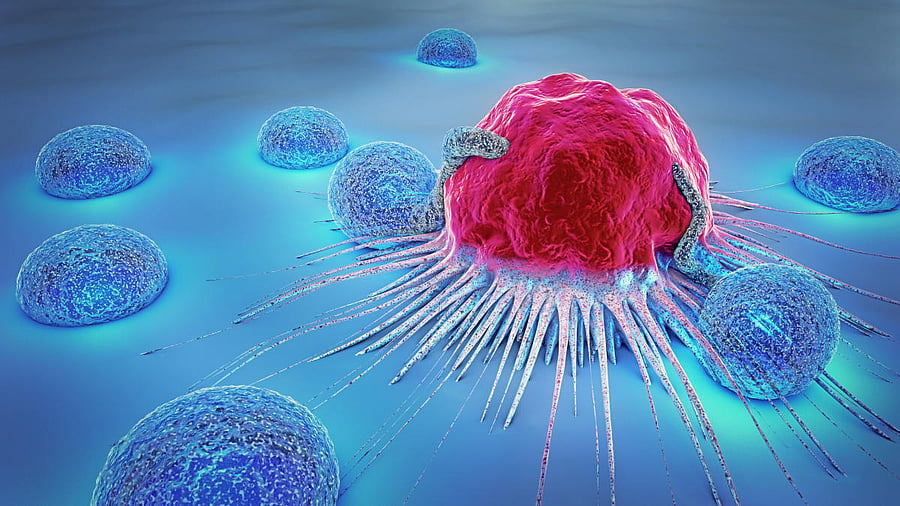
Once cancer is detected and a treatment prescribed, it is an expensive affair to gauge the effectiveness of the medication offered and whether it is doing the patient any good.
Till date, patients had to resort to expensive CT scans or MRIs to check whether they were responding to treatment. Now, a research conducted by a team of scientists — primarily from India — has demonstrated the clinical utility of Circulating Tumour Cells (CTCs), which are found in blood, to monitor response to treatments and predict survival.
“Checking whether a treatment is working on a patient is a n extremely challenging task,” said, Prashanth Kumar, faculty scientist at the Institute of Bioinformatics (IOB), Bengaluru. Kumar and his team — Ajay Balakrishnan, IOB, and Dr Annapoorni Rangarajan from the Indian Institute of Science — have established a method to quantify CTC clusters in cancers during various treatment regimen.
The technique developed by the group of scientists will make it easy for medical professionals to detect whether a cancer is progressive and the treatment is working for the patient.
Explaining the technicalities of the procedure, Kumar said the method involves liquid biopsy, or in layman’s terms, a blood test. Earlier, only blood cancer was detected using liquid biopsy. Now, blood samples can be taken from patients and cultured in uniquely designed microwell plates to analyse the circulating tumor cells. Based on how the culture looks like, a doctor can assess whether a patient is responding to the treatment or not.
Speaking to DH, Dr Govind Babu K, professor of medical oncology at the Kidwai Memorial Institute of Oncology, said it was a novel method to assess the response to treatment. “We have correlated the progress of the treatment as detected using CTCs in liquid biopsy with methods such as CT scan and MRI, and it has correlated well,” he said.
Noting that more funding was required to continue the research by refining the technique employed, he said it could be a cost-effective method to monitor treatment and provide personalised drugs to cancer patients. “It can reduce the cost of assessing the success of a treatment by 70-80%,” he said.

